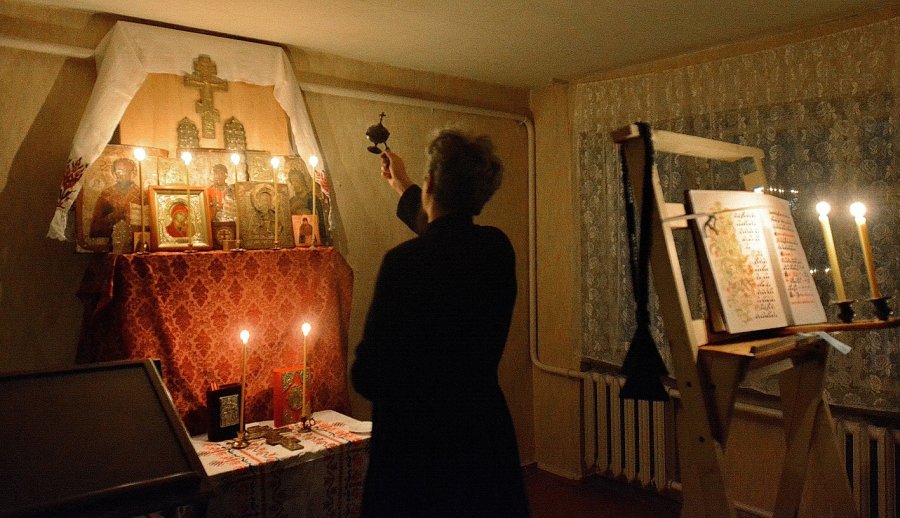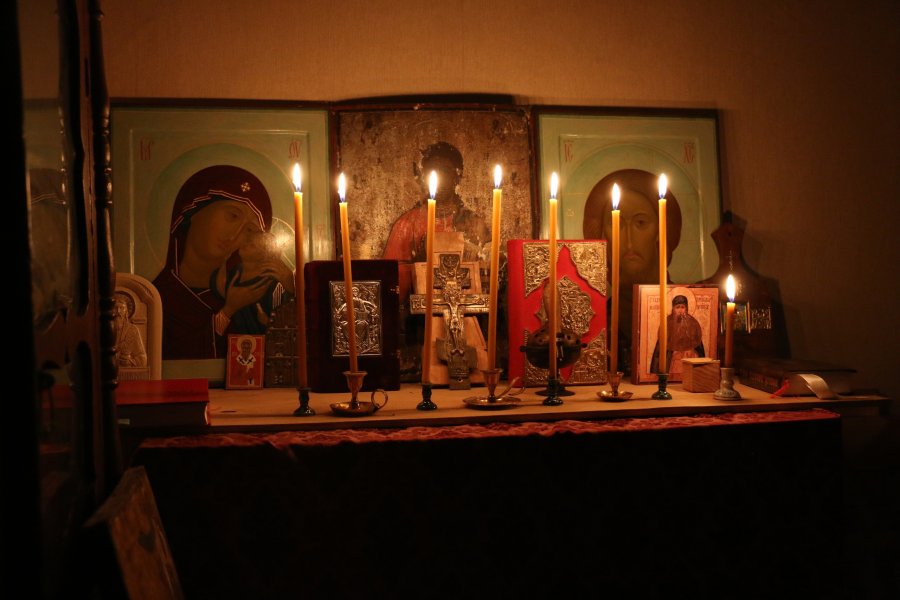Few Orthodox Christians are aware of the existence of the so-called "lay" service, that is, the ability to worship without a priest. This rite, of course, completely excludes the Eucharist, the altar, and the priestly actions and exclamations. The latter, for example, are specially substituted and carried out by a lay leader (elder) who conducts the service.

This practice may be little known even to the churchgoing faithful, for it is virtually unheard of in our Orthodox environment, where the statute and liturgical order are perceived as a purely clerical matter and are exclusively the prerogative of the priesthood and the clergy at the top.
In this connection let us look at the Edinoverie (Old Believer) parishes of the Russian Orthodox Church. Some of them, because of their small number and isolation, are not regularly served by a priest, but on occasion, "from feast to feast," and for this reason are forced to perform a significant portion of their services using their own resources. As a result, the core of such congregations consists of people who are fluent not only in the liturgical order of services, but also in the entire range of means of church worship (singing, reading, leading services, church maintenance, facilities, etc.). By the way, 99% of Edinoverie congregations with a full-time priest also rely on parishioners who are well versed in the statutes and chanting. This has always been a distinctive feature of Old Believer parishes.
The use of the "lay rite" in Edinoverie goes back, in a way, to a centuries-old tradition of priestless Old Believers. This tradition bears in itself the richest experience of survival of Christians in conditions of persecution with extremely careful preservation of liturgical practice even with the loss of ties with the priesthood.
The combination of lay and priestly types of services in a number of Edinoverie parishes is a unique and interesting phenomenon in contemporary Orthodoxy. In spite of possible associations with the aforementioned priestless branch of Old Believers, this "rite" has always existed and has never been forbidden in the Russian Orthodox Church.
Let us make it clear: this is not a deliberate striving for "priestlessness" instead of liturgical fullness and the accessible Eucharist. As noted above, in Edinoverie this is largely a forced measure.

On the other hand, the recent history of the pandemic and the abrupt closure of churches comes to mind, when we discovered the complete confusion of the Orthodox community in the face of any restrictions associated with regular church life. As we recall, in that situation, we had, at best, to be satisfied with television and Internet broadcasts of services.
How many, then, at the peak of the lockdown, remembered the possibility of resorting specifically to the lay reader services? And this is a ready recipe for performing services (up to and including feastal ones) both in private and in a family or fraternal circle.
And in general, this practice is not useless. It may well serve the cause of religious education and a deeper experience of the church service by the Orthodox laity, and not only among Edinovertsy.
We should not forget the "backward echo" of the end times, which has been echoed many times in Christian history. Not every era favors the Christians as much as the present time, although only yesterday things were very different. And the seemingly serene present, as seen in the same pandemic or the new schismatic trends, can also sober us up with trials.
Therefore, for the sake of the strength of the Church, let us remember the existence of such a "portable church" as lay reader services, so that statutory and conciliar prayer may be supported not only by pastors and monastics, but also by the efforts of the rest of the members of the Church.
Mikhail Krasnov
Photos - Vladimir Sayapin


